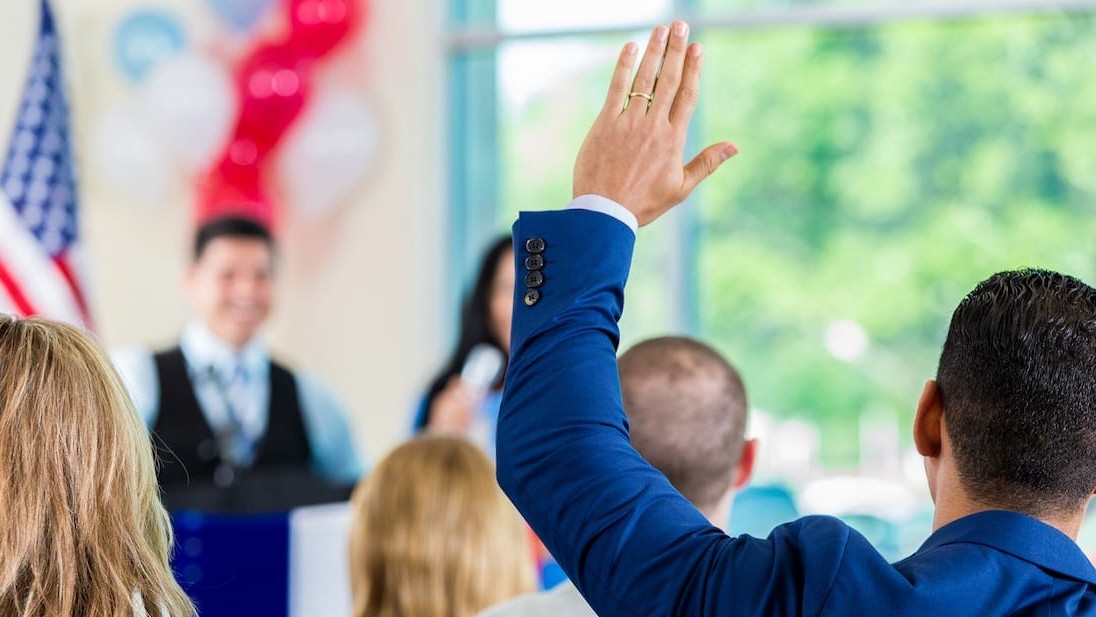By Mike Fitzgerald
There are few if any politicians or citizen leaders in the political middle now. There is little or no consensus about the major issues in the public realm of the United States. Extremes on the right and left have created an accelerating downward spiral, preventing any likely agreements that benefit the entire community or country.
The Democrats, the Republicans, and the Independents all have their core issues, as do the environmentalists, the union representatives, the educators and others, but they’re mostly based on the hardest positions of their most unflinching members. There is little or no middle ground. There is little or no compromise on major issues. It’s “us” versus “them.” In calmer times of challenges and opportunities, it is more often than not that the really significant issues and big projects get done by consensus and majority support from all sides. In this stalemate, no side can win, so the country, facing big issues is marooned in angry, stifling, gridlock that has lessened the optimism of many Americans.
In Colorado citizens know this all too well. In recent history, in the 1980s, Colorado had one of the most booming economies in the U.S. The oil and gas industries were successful, and Colorado, a major energy-producing state, was reaping the rewards.
Things changed drastically when later in the decade, the price of oil and gas plunged, dragging down the state’s economy. Many small businesses in Colorado left the state or went out of business, the vacancy rate in downtown Denver spiked. Colorado’s economy and state and local budgets were in jeopardy.
By coming together, the Chambers, EDOs, business and environmental leaders, educators, the arts community, and local governments, despite political affiliation, organized a concerted effort to diversify the economy. This took compromise. This took communication by all factions, and most importantly, cooperation and collaboration.
It also took a coalition — leaders of all groups — focused on a shared goal, economic revival. They committed themselves to figuring out how to collaborate – they found middle ground to diversify and revive the economy. Here is the origin of what became Colorado’s culture of collaboration to get necessary projects done.
As a direct result of this collaboration, Colorado’s economy is now one of the most economically diverse, dynamic, highest quality places in the U.S. and global economy. With 14 strong economic sectors, Colorado is now an economic juggernaut, with low unemployment, a highly educated workforce and a diverse and thriving economy. The state’s reputation for collaboration is a model for getting big things done on a large scale – airports, arts centers, top quality universities, the Light Rail, sports stadiums, hospitals, research institutes, and workforce centers.
Collaboration works
Compare this to what’s happening right now in Washington D.C. What’s become clear over the past five decades in the U.S. is that important, public projects do not get done without collaboration at the national, state and local levels. While working here in Colorado over the last decades, cooperation has fallen apart on a national level, with special interests fighting each other, accomplishing little that matters to most U.S. citizens.
What can be done to get beyond this gridlock? There are a few concrete steps that made a difference in Colorado’s transformation that are applicable to the country as a whole today.
Make a commitment: In these divided times, it’s easy to fall back to opposite sides and refuse to acknowledge or work with the other “team.” But this is a mistake that hurts us all. When we’re at war with each other it becomes impossible to get much done, and we’re seeing the result of that right now in the government shutdown, and severe angry bipartisan politics. Leaders must commit and move to the center, away from the most extreme stances on all sides, and seek to work with those they may not necessarily agree with for solutions that benefit the whole country. Polarization is failure, is dividing American Citizens and causing bad problems to get worse.
Suggested Reading:
Seek out common ground: Cooperation doesn’t just happen easily or naturally this age of the world, but it is the only solution to the big problems. Rather than dig in heels and double-down on personal agendas, leaders need to look at the big picture and decide to at least make incremental progress toward common goals. There is always some common ground, no matter how far apart we are.
Remember, there seldom is one answer: There is rarely any one financial or political solution to a problem, or one piece of legislation that will make everything better for everyone. Solutions are complex. That’s why change must be a collaborative process, done as a group, over time with many people listening to each other.
Over the last 30 years, Colorado has emerged as an example of the power of political cooperation, and that has benefited us all. After the 1980s energy crash, a diverse coalition of local leaders organized and created big solutions of economic diversification. Today, Colorado has one of the highest qualities of life in the country and is one of the best performing, most economically dynamic places anywhere.
Colorado’s collaboration is an example of problem solving and opportunity creation on a huge scale. If Colorado’s collaborative culture continues, this state’s communities and citizens will continue to solve problems and create opportunities into the future, by the best of America’s traditions – cooperation and mutual benefit.


